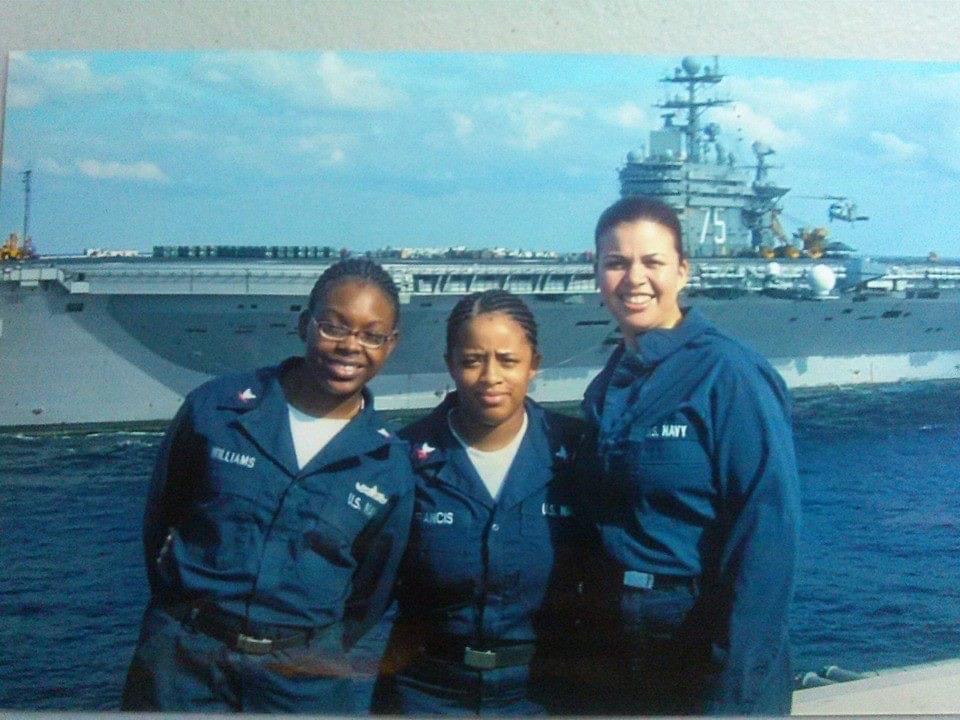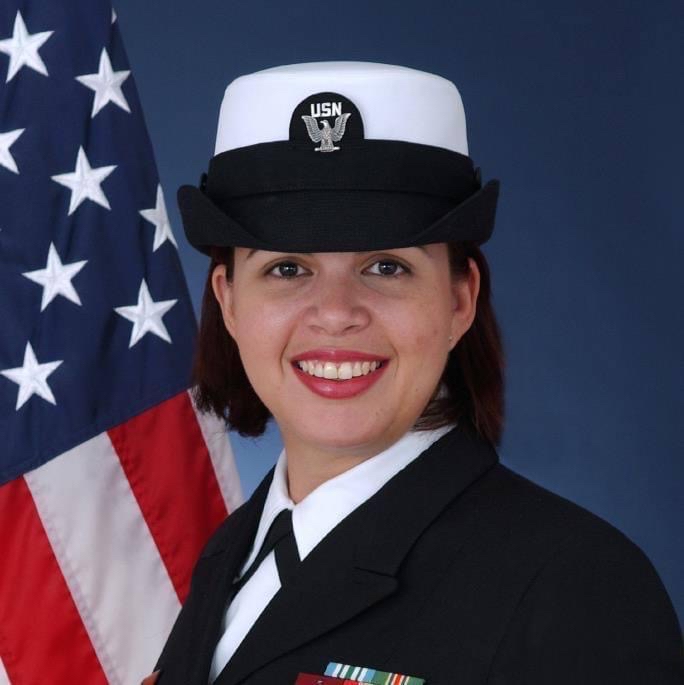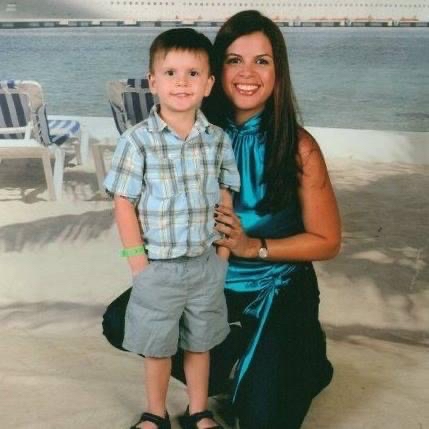As a non-traditional student, Jennifer Aquino often finds herself in classes with other students who are much younger than she is. In fact, she has a teenage son who probably has more in common with her classmates than she does. Aquino also brings a far different experience to the classroom after she first left her home in Puerto Rico almost 20 years ago to join the U.S. Navy.
Like some of her fellow students who grew up far outside the Central New York Region, she was reluctant to leave her home and the community she grew up in. Ultimately it was the desire to seek out a more fulfilling life that led her to answer the call to service, a call that both her father and grandfather had answered before her.
“Both my dad and my grandfather are veterans, my dad served in Vietnam and is a Purple Heart recipient after being wounded during the war,” said Aquino, who served in the Navy for 14 years as a cryptology technician. “While growing up I never contemplated the military, my father didn’t push me or my younger sister towards the military. In Puerto Rico, at that time, it just wasn’t common for women to join the military.”
The average age of enlistment in the military is 19 years old, but Aquino was 27 when she reported for basic training with the Navy. Prior to enlisting, she had attended college in Puerto Rico where she was studying to be a civil engineer. After several years of studying, she decided it wasn’t a career that would satisfy her and decided to look for other opportunities.
“Something was inside of me telling me I was created for more, I had a passion inside of me and I needed to find out what that was,” said Aquino.
Since she was four years old, Aquino says she had an interest in learning languages, and figuring out how languages worked. That interest would propel her into what she says was her calling. After posting her resume online, she wound up getting a call from a U.S. Navy recruiter who wanted to speak with her.
“I wasn’t really interested in joining the Navy. My perception of the military was that they recruit high schoolers, so I didn’t understand why they were calling me,” she said. “It was just out of respect that I agreed to speak with them, but what they told me was fascinating.”
It was 2003, the United States had been involved in combat operations in Afghanistan for two years and were just entering a war with Iraq. While the benefits of service were obvious, she knew her parents would have concerns, primarily if she was going to be sent to war.
“I already knew the worries my parents would have, they wanted to know if I was going to go. I told them that the job I would have would not send me there, so they wouldn’t freak out.” Aquino says.
She decided to enlist and put her linguistic skills to use, choosing to become a Cryptologic Technician Interpretive, more commonly referred to as a CTI. More than just a translator, CTIs are also cultural experts who can translate and interpret foreign communications within the scope of cultural intricacies. They perform a wide range of tasks in support of national intelligence-gathering, focusing primarily on cryptology and signals intelligence.

Aquino spent most of her time in the Navy stationed in San Antonio, Texas, where she says most Spanish linguists are stationed. She did have other assignments throughout her career though, including a stint on the USS Dwight D. Eisenhower (CVN-69), a Nimitz class nuclear powered aircraft carrier. She also served as an instructor for junior sailors coming into her career field where she taught students to refine their interpretive linguistic skills between English and Spanish.
Ultimately, Aquino felt stifled with the lack of options available to her for travel and assignments. She opted to depart the U.S. Navy after fourteen years of service. While she looked forward to pursuing new opportunities after her career in the military, she says the transition out was especially hard.
“I struggled with depression because, all of a sudden, I was no longer going to be Petty Officer Aquino. I was just going to be Jennifer, and I had no clue what I wanted to do.” Aquino said.
She first started working in the private sector teaching Spanish to English speakers and vice versa. Then COVID happened. Aquino says she was stuck in the house like everybody else when a post on social media from one of her Navy friends caught her eye.
“One of my friends, she was actually one of my students as well, was a linguist like me in the Navy. She posted that she had been accepted to Princeton University, I didn’t even know older students like she and I could go to an Ivy League school.” Aquino said.
Aquino was originally interested in attending an Ivy League school like her friend but ran into issues with admission restrictions due to how many credits she had already accrued. It was during a college fair that she spoke with someone from Syracuse University and found out about the school’s veteran initiatives. When she found out she could study linguistics at Syracuse University, the choice was obvious.
“I was so grateful when they said they would accept my transcript, even my credits from more than 20 years ago,” Aquino said. Now a senior in the College of Arts and Sciences where she studies linguistics, she wants to combine her experience and her education to make herself more marketable in the workplace.
For Aquino, giving back to her community is a big part of her life. At Syracuse University that commitment to service propelled her to becoming the Vice President of the Student Veterans Organization at Syracuse University. In her role she is vital in connecting military-connected students at Syracuse to both the on-campus and off-campus communities. Being a single mother herself, she has been an advocate to make some of the social events more inclusive of families with children.
“I’m glad for those who came before me and broke the barriers, it means I can approach a professor and ask for an extension if I have to take care of my son,” says Aquino. “So I’m a mom, counselor, coach, you name it. Trying to go to school full time, give back to the local community, and still be at every one of his school events that I can…it gets hard to be 100% in everything, I’m just very grateful the faculty and staff support students like me.”
Dedicated to her education, Aquino plans to graduate and go into a graduate program for her field. For her, education is far more than just a ticket to a better life, it’s also about how colleges and universities mold people to reach their potential in life.
Aquino sees both her military service and her time in college as contributing to something much larger. “It’s molding you to become better educated, and hopefully to become a better citizen. I think that’s part of the reason why universities were built in the first place, so students can become better citizens in a universal environment,” said Aquino.


